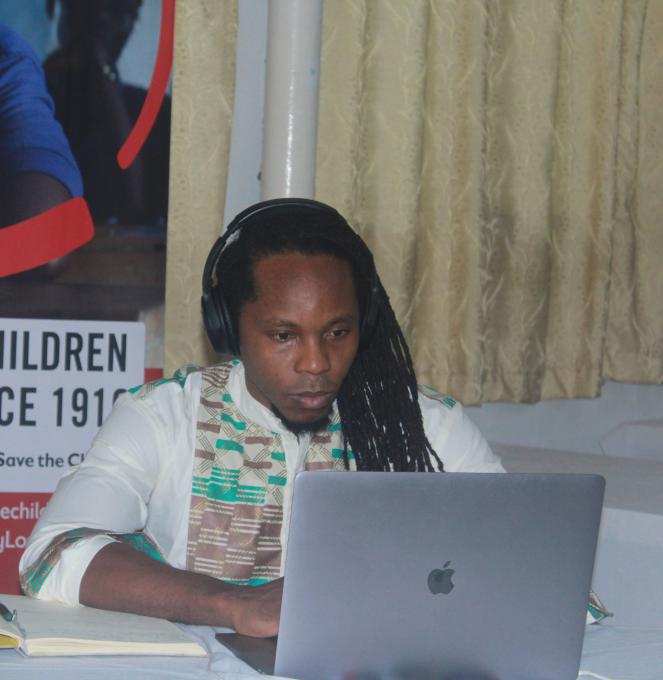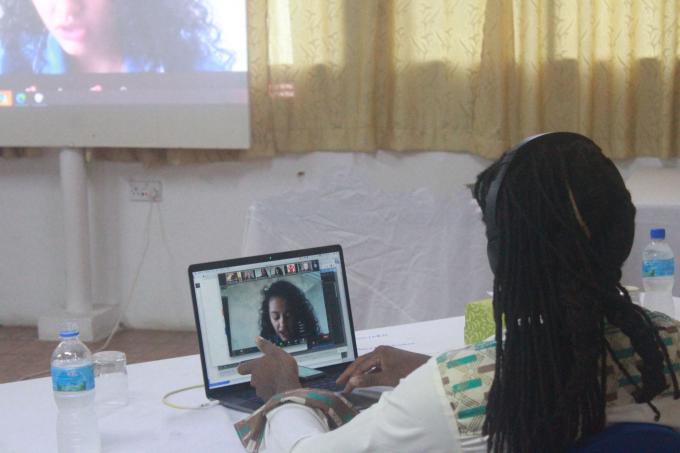Save Our Education meeting calls on governments, partners and donors to wake up and do something to ensure education for all children

Freetown, Sierra Leone.
On Tuesday 14 July 2020, Save the Children held a virtual side event to the High-level Political Forum, Save our Education.
Co-hosted by the Government of Sierra Leone and Columbia, the meeting engaged global education leaders on the impact of COVID-19 in children’s learning and wellbeing. They shared experiences on positive global policies and funding practices to urgently address education needs for the most vulnerable as well as highlight their vision for education beyond COVID-19.
Panelists included Honorable Minister Dr. David Moinina Sengeh, Minister of Basic and Senior Secondary Education for Sierra Leone; Honorable Minister Maria Victoria Angulo, Minister of Education for Columbia; Honorable Minister Dag-Inge Ulstein, Minister of international Development for Norway; Jaime Saavedra, Global Director of Education at World Bank; Kevin Watkins, Save the Children UK CEO and; child advocate from Columbia.
With Western Central Africa region having 9 out of 12 countries who are at extreme risk of falling behind in their progress towards Sustainable Development Goal 4, due to COVID-19, this event was timely not only as a reminder to commitments made but an opportunity to highlight actions being taken to address this concern.
Global leaders shared their policies to address education challenges during COVID-19 focusing on the most vulnerable to ensure they continue learning and return to school when they re-open. Hon. Minister Dr Sengeh talked about initiatives to ensure continued learning through distance teaching programmes, laying emphasis on government’s radical inclusion policy to ensure girls who are most at risk of dropping out of school stay in and complete school. He stated that his plans were to “keep learning alive” by looking abreast with best practices from developed countries “their innovation and solutions for children on the edge of inclusion.” Beyond COVID-19 he talked of plans to improve remote learning to ensure learning happens and looked to global partnerships to accelerate national plans. He stated that the government had drafted a cabinet paper to increase girls’ retention and completion and stated that he remained committed to increasing investment in the girl child as a key priority agenda.

The girl advocate from Columbia made a passionate plea to governments, partners and donors to pay attention to the needs of children, particularly the most vulnerable who were more at risk of permanent exclusion from education due to the unexpected interruption by COVID-19.
Jamie Saavedra stated that COVID-19 was likely to have a long-term effect calling it the “new normal” which meant that governments now had to understand the magnitude of change needed to radically re-imagine education. This includes girls’ equitable access to technology, government initiatives to get them back to school and increased drive for the reduction of gender-based violence in schools to ensure retention.
In his closing statement Kevin Watkins reminded us that children were their own best advocates. Their voices were key to addressing issues affecting their lives and this should not be forgotten. He called on governments, donors and partners to “wake up” and “do something” because this was a crisis like no other. To combat child poverty, there is need for more investment in education for girls to prevent early marriage and the need to place social agenda at the top of government agenda.
From this event there is hope that discussion around education is reignited and that the discourse will contribute to reminding government, partners and donors on the need to accelerate actions to improve education outcomes for all children.
 Sierra Leone
Sierra Leone